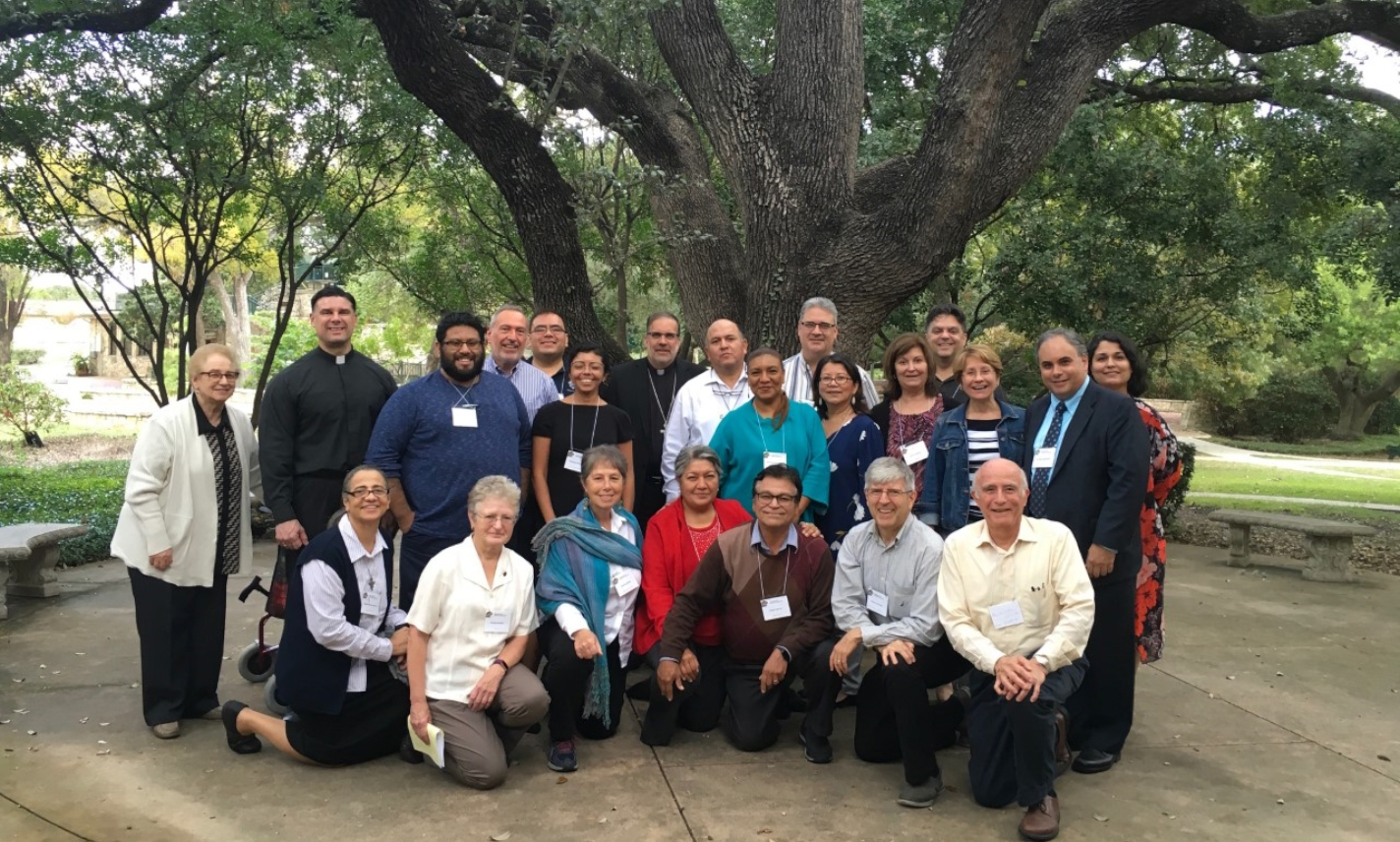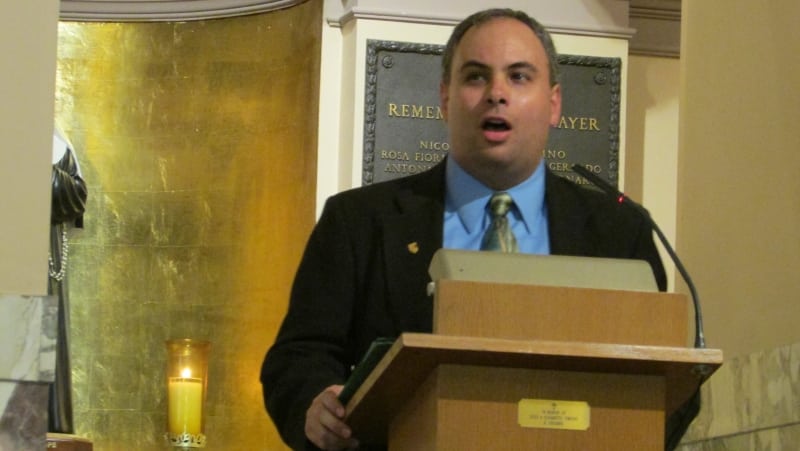One of the opportunities I have as Assistant Director of Certification for Ecclesial Ministry and Service at the United States Conference of Catholic Bishops (USCCB), is to record video reflections on the readings of the Scriptures proclaimed at daily Mass. I do so as part of larger group of colleagues at the Conference, along with lay and ordained leaders from around the country. I am grateful for the opportunity to reflect on the meaning of the readings for the life of faith today and to share them here, along with the written text of the reflections. To view these video reflections for past and upcoming celebrations of the Eucharist, visit the USCCB website.
Reflections on the Word | Saturday, 24th Week in Ordinary Time – Year 2 | September 22, 2018
In Jesus life and ministry, his most favorite form of teaching was the parable – a story with a moral ナ and a twist. Usually, Jesus’ parables ended unexpectedly, with a twist in the story to catch the listener off guard and so, hopefully, find a way to his or her heart.
At first it seems the parable of the sower and the seed which we hear today doesn’t quite fit that pattern. The story is straightforward enough and we know it well – a sower, some seed, and four types of soil. In each of the first three soil types – the path, the rocky ground, the thorns – the poor conditions conspire against the seed. Only in the final soil – the deep good soil – can the seed take root and produce abundantly.
But the twist comes at the end, ambiguous in meaning – “Whoever has ears to hear ought to hear!”
What does it mean to have ears to hear? There is no clear answer. Jesus explains the parable’s meaning to the disciples – that the seed is the Word of God and the types of soil are ways people respond to that Word – or fail to do so.
However, he doesn’t makes the phrase “Whoever has ears to hear ought to hear!” and clearer. In fact he says something even more ambiguous: The knowledge about the meaning of the parable is knowledge of the mysteries of the Kingdom of God that is only granted to the disciples! Yet, the disciples have to have it explained to them!
This is what makes the parables of Jesus so intriguing and so powerful for teaching the Christian life. We always have to check ourselves to make sure that we know the meaning of this word for our lives, TODAY, as much as Jesus’ original disciples needed to figure it out as well. Fortunately, Jesus, the faithful teacher, remains with us and speaks to us anew each time we hear God’s Word proclaimed.
Yet even when the explanation is right in front of us – as it is today when Jesus gives the parable and the explanation (though some commentators reflect that the ‘explanation’ was St. Luke trying to help the early believers along) the parable can easily be misunderstood.
For example, I once heard this parable used (not in a church mind you) to describe investment capitalism. The seed on the ground are those who don’t know how to invest well; the shallow roots are those who don’t take enough risk; the thorns are those unable to navigate the stress and volatility of the investment market!
Somehow I think that is an example of what Jesus meant when he said ‘looking they don’t see, hearing they don’t understand!’
Other times people think of this parable as describing different people we know. We may think of the person who simply doesn’t care about God or about faith and think that is the seed on the path. Some anticipate that those who struggle in their faith when things are difficult must be the rocky soil who have no depth. We look at still others and think those people who are too busy to pray and anxious about their jobs, their well-being, are simply those in the thorns.
And, of course, some see themselves as planted in the rich soil and feel they are hearing God’s word, receiving it and producing a hundredfold.
Somehow I don’t think the parable of the sower was meant to pigeonhole others or to consider oneself better than others in their understanding, any more than I think it is investment advice.
If we are honest with ourselves, we have all been the four types of soil. We have all had times when we have ignored the implications of God’s Word in our lives. We have all had moments of feeling uprooted from our faith or overcome by stress and anxiety. And, hopefully, we have also had times when we have seen the loving power of God’s word active in our lives producing good fruit in our relationships, our families, our work, and our lives.
We always need to have our ears open to really hear – really HEAR – the Word of God addressed to our lives, our situation, our history, our moment. And that the Word of God can comfort and also challenge us. When we allow it to do both we will have the ears to hear what Jesus speaks to us, and experience the promise of resurrected life that Saint Paul speaks about in our first reading and which the Psalmist proclaims – an opportunity for unexpected new life in this life and the life to come.
God give you peace!


 Request Dr. DelMonico's professional services for a liturgical, ministerial or leadership consultation, or for an academic or public presentation.
Request Dr. DelMonico's professional services for a liturgical, ministerial or leadership consultation, or for an academic or public presentation.